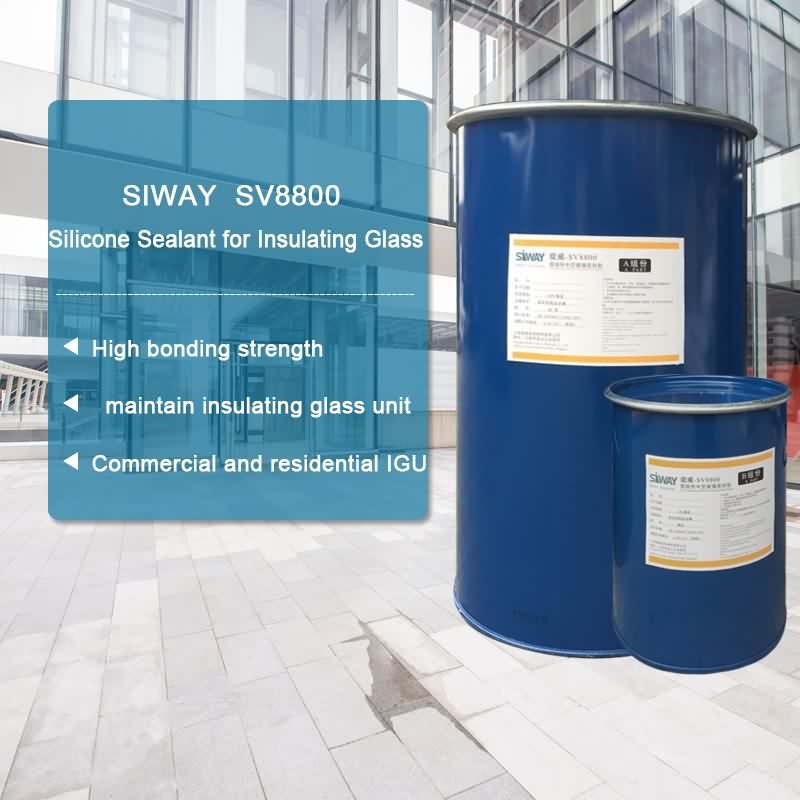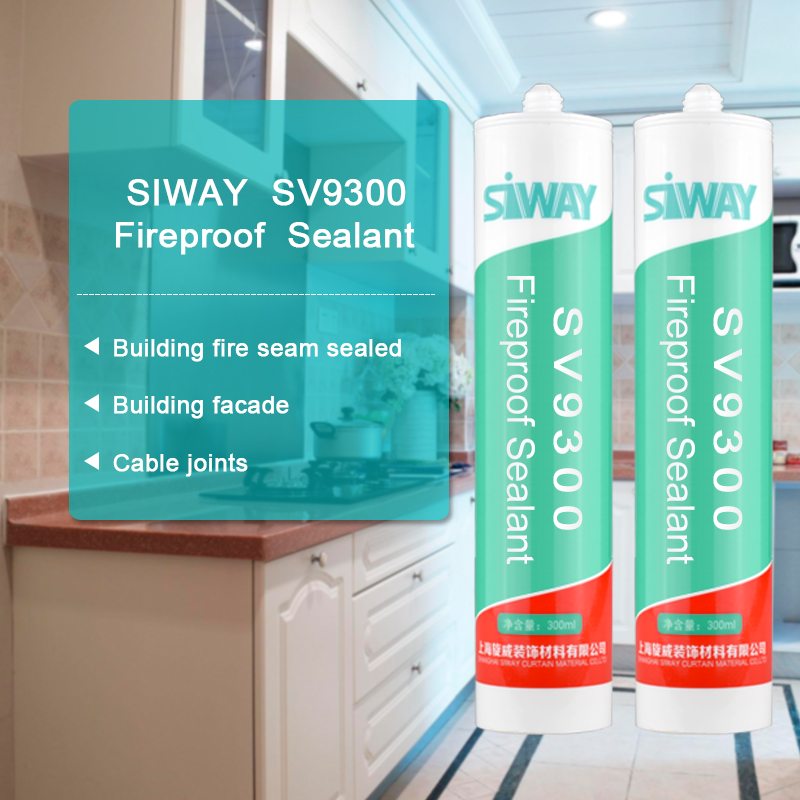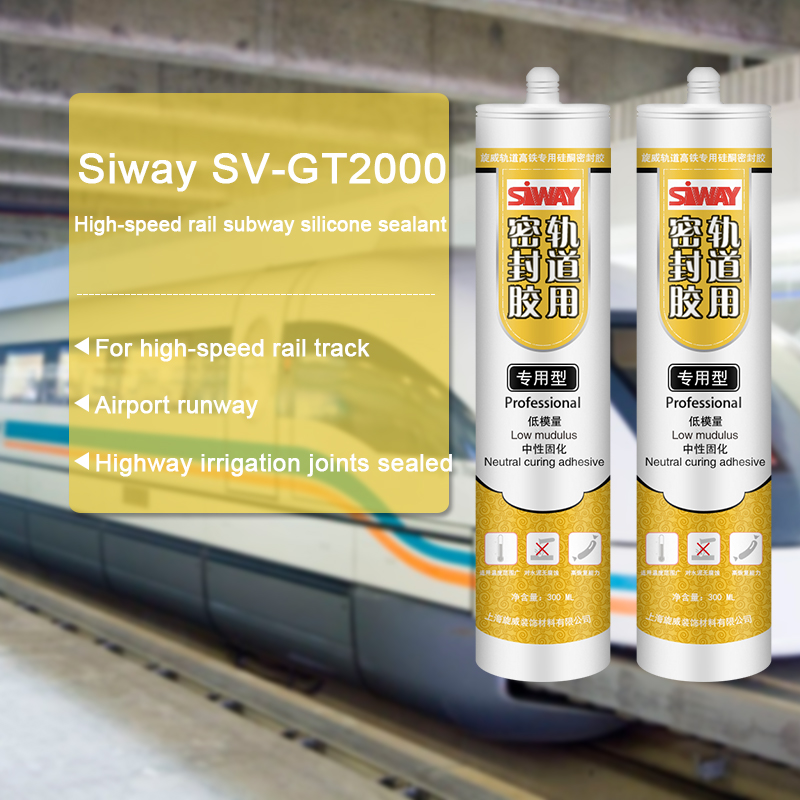Cheap PriceList for SV-8800 Silicone Sealant for Insulating Glass for Barbados Manufacturers
Short Description:
Description SV-8800 is two components, high modulus; neutral curing silicone sealant specifically developed for assembly of high performance insulated glass units as secondary sealing material. Where to use It is a two-component silicone that offers variable work life with high bonding strength to maintain the integrity of insulating glass unit, suits both commercial and residential IGU. Key Features 1. High Modulus 2. UV resistance 3. Low vapor and gas transmission 4. Primerless adhesion...
With our excellent management, strong technical capability and strict quality control system, we continue to provide our clients with reliable quality, reasonable prices and excellent services. We aim at becoming one of your most reliable partners and earning your satisfaction for Cheap PriceList for SV-8800 Silicone Sealant for Insulating Glass for Barbados Manufacturers, We appreciate your enquiry and it's our honor to work with every friend worldwide.
Description
SV-8800 is two components, high modulus; neutral curing silicone sealant specifically developed for assembly of high performance insulated glass units as secondary sealing material.
Where to use
It is a two-component silicone that offers variable work life with high bonding strength to maintain the integrity of insulating glass unit, suits both commercial and residential IGU.
Key Features
1. High Modulus
2. UV resistance
3. Low vapor and gas transmission
4. Primerless adhesion to coated glass
5. 100% compatible to SV-8890
Technical data sheet
| Test standard | Test project | Unit | value |
| Before curing——25℃,50%R.H. | |||
| GB13477 | Specific gravity(After mixing) | 1.33 | |
| GB13477 | Operating time | min | 20-40 |
| GB13477 | surface drying time(25℃,50%R.H.) | min | 80-188 |
| corrosivity | No | ||
| 7 days after curing——25℃,50%R.H. | |||
| GB/T 531 | Durometer Hardness | Shore A | 40 |
| GB13477 | The tensile modulus at 12.5% elongation | Mpa | 0.18 |
| The ultimate tensile strength | Mpa | 0.92 | |
| GB13477 | Elongation limit (fracture) | % | 150 |
Certification
GB-24266-2009;
Color
Component A(Base) – White, Component B(Catalyst)- Black
Package
1. Component A(Base): (190L), Component B(Catalyst) (18.5L)
2. Component A(Base):24.5kg (18L), Component B(Catalyst): 1.9kg (1.8L)
Shelf life
12 months
Note
If you want the TDS or MSDS or other details, please contact with our sales person.
Established in 1998, Hong Ye Jie Technology Co., Ltd. is a Science and technology corporation which is engaged in production, R & D, and sales of liquid silicone rubber.
Our products includes 36 series in hundreds of kinds of silicone products like silicone rubber, RTV-2 molding silicone rubber, silicone rubber for manual model design, shoe sole mold silicone rubber, silicon oil, pad printing silicone rubber, encapsulant and potting compound, silicone rubber for LED display, electronic thermolysis ointment, thermal conductivity silicone, special silicone rubber for CPU, silicone tube, silicone membrane, silicone sealant , liquid silicone rubber, addition cure RTV silicone rubber, HTV silicone rubber, etc. These are currently been exported to Southeast Asia, Europe, the America and other 50 countries and regions. Co. Web ( www.szrl.net )
Feel free to contact sales manager Sabrina
E-mail: hyse@szrl.net
MSN: wangshuang369488rtv@hotmail.com
Skype: sabrina369488
Tel: 086-755-89212382
Mobile: +86 18938867574
Fax: 086-755-89948030
What is RTV SILICONE? What does RTV SILICONE mean? RTV SILICONE meaning – RTV SILICONE definition – RTV SILICONE explanation.
Source: Wikipedia.org article, adapted under https://creativecommons.org/licenses/by-sa/3.0/ license.
RTV Silicone (Room Temperature Vulcanization silicone) is a type of silicone rubber made from a two-component system (base plus curative; A+B) available in a hardness range of very soft to medium – usually from 15 Shore A to 40 Shore. RTV silicones can be cured with a catalyst consisting of either platinum or a tin compound such as dibutyltin dilaurate. Applications include low-temperature overmolding, making molds for reproducing, and lens applications for some optically clear grades.
To produce the material, the silicone rubber is mixed with the curing agent or vulcanizing agent. Usually the mixing ratio is a few percent. In order for the RTV silicone to reproduce the surface texture, attention is paid to the cleanliness of the original. Vacuum deairing removes entrained air bubbles from the mixed silicone and catalyst to ensure optimal tensile strength, which affects reproduction times. In casting and mold making, RTV silicone rubber reproduces fine details and is suitable for a variety of industrial and art related applications including prototypes, furniture, sculpture and architectural elements. RTV silicone rubber can be used to cast materials including wax, gypsum, low melt alloys/metals and urethane, epoxy or polyester resins (without using a release agent). A more recent innovation is the ability to 3D Print RTV silicones. RTV silicones’ industrial applications include aviation, aerospace, consumer electronics, and microelectronics. Some aviation and aerospace product applications are cockpit instruments, engine electronics potting, and engine gasketing. RTV silicones are used for their ability to withstand mechanical and thermal stress.
RTV silicone rubber has excellent release properties compared to mold rubbers, which is especially an advantage when doing production casting of resins (polyurethane, polyester, and epoxy). No release agent is required, obviating post-production cleanup. Silicones also exhibit good chemical resistance and high temperature resistance (205 °C, 400 °F and higher). For this reason silicone molds are suitable for casting low melt metals and alloys (e.g. zinc, tin, pewter, and Wood’s metal).
RTV silicone rubbers are however generally expensive- especially platinum-cure. They are also sensitive to substances (sulfur-containing modelling clay such as Plastilina, for example) that may prevent the silicone from curing (referred to as cure inhibition). Silicones are usually very thick (high viscosity), and must be vacuum degassed prior to pouring to minimize bubble entrapment. If making a brush-on rubber mold, the curing time factor between coats is long (longer than urethanes or polysulfides, shorter than latex). Silicone components (A+B) must be mixed accurately by weight (scale required) or they do not work. Tin catalyst silicones shrink somewhat, and do not have a long shelf life. Certain types of RTV release acetic acid during the curing process, and this can attack solder joints, causing the solder to detach from the copper wire.





